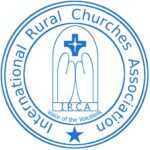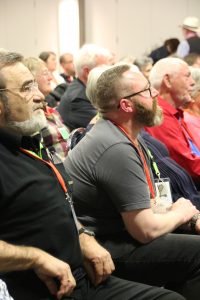It is our tradition to issue a statement after each quadrennial conference. Here is the statement from the New Zealand conference.
International Rural Churches Association
Voice of the Voiceless
STATEMENT OF 2018 IRCA 6th QUADRENNIAL CONFERENCE
HELD IN LINCOLN, NEW ZEALAND
15-21 April 2018
THEME: GROWING TOGETHER
The gifts he gave … to equip the saints for the work of ministry, for building up the body of Christ.
Ephesians 4:11-12
Tēnā koutou, tēnā koutou, tēnā rā tātou katoa – Greetings to all.
We greet and honour Almighty God who made the heavens and the earth and knitted us together in our mothers’ wombs. We greet and honour the forebears of the land where we gathered and the forebears of all of our peoples around the world, entrusting them to the love of our saviour Jesus Christ. We greet all rural churches and followers of Christ from near and far. Tēnā koutou.
We have this message to share with our Christian family throughout the world, rural communities, and leaders of national and international church organisations.
We are followers of Jesus from all over the world with a call to minister in communities in rural areas. Ninety-four people from India, Sri Lanka, Romania, Switzerland, France, England, Scotland, Canada, USA, Korea, Fiji, Tahiti, Australia, and New Zealand gathered at Lincoln University–Whare Wānaka o Aoraki to explore the theme Growing Together. For us all, local and visitors, it has been an unforgettable experience, meeting and talking with rural Christians from other parts of the world, truly an opportunity for practical and spiritual enrichment. In worship, music, presentations, workshops, and times of fellowship, we immersed ourselves in the faith that unites us, looking at the contexts we inhabit through the lens of biblical narrative. What is different between us, culturally and denominationally, is not a barrier but rather a source of inspiration and growth. We came together to encourage each other and learn from one another, in our work of serving God and our communities so that they can flourish. Sharing deeply, in a great variety of accents and perspectives, inputs reflected both our diversity and our commonality as rural people. Our common goal is for our churches and communities to live the vision God dreams for the world.
Part of our purpose is to bring reconciliation in our communities. In New Zealand this includes reconciliation between first peoples and more recent settlers. It can be a painful process seeking healing for the way colonisation and consumerism have abused soil and rivers and peoples and continue to do so. In other places there is need for reconciliation between communities for different reasons but in each case it involves the privileges of community being exploited by some at the cost of others. In all of our home places we seek now to graft ancient wisdom onto contemporary knowledge so all peoples and rural communities may flourish as we serve one another and our creator God.
During the week we grew together as a learning community. We considered what IS, what COULD BE, and what WILL BE in our regions, sharing ideas, experiences, and inspiration that we pray will be transformational for us, our areas and our nations. We were inspired by the strong convictions expressed that God is active in our rural church communities and is leading us into new pathways.
From the conference we bring back these learnings to our churches, communities, and countries:
- God is the starting point and goal for all we are and do. Focussing on our activity to change the world may lead us astray. We call for more prayer in order to focus on God’s vision and so become the light of the world Jesus commissions us to be.
- Rural churches need visionaries who, in partnership with God and others, challenge the status quo and take risks to find innovative ways to communicate God’s love and meet rural challenges in a fast changing world.
- Rural churches seek to build up all the people of God to encourage ministry by the whole body of Christ. We seek support for collaborative ministries and remind those in positions of influence in our churches that the call to ministry belongs to the whole people of God.
- True ecumenism means sharing common space without losing one’s own identity. As the body of Christ the church is always a “uniting” church, building relationships of respect and collaboration.
- Our world is bigger than our own backyard. Many regions face challenges that risk lives and we are aware of the impact of climate change, especially on Pacific nations and low lying continental regions, of persecution on minority faiths in many parts of the world, and of consumerism on traditional livelihoods. Awareness calls us to change our behaviours towards the planet, other nations, and others in our own context.
We need/urge our denominational churches to listen to our voices from the rural areas and positively support our mission and ministry. We offer to churches the resources gathered within the IRCA network – on-line material, models of ministry, and personnel with expertise and strong ecumenical and international connections.
The Association reaffirms its solidarity with rural communities which are vulnerable to global economic and political influences and to man-made and natural disasters. Rural areas need a voice. We in IRCA will continue to take on this God-honouring role to be intentional voice with the voiceless, and be active in raising the profile within our churches of the challenges of rural ministry.
ON BEHALF OF IRCA 20 April 2018
Jerry Marshall – Chairperson (Ambassador, Germinate, the Arthur Rank Centre, UK, lay person)
Catherine Christie – Past Chairperson (United Church of Canada, clergy)
Eric Skillings – Secretary (United Church of Canada, clergy)
Lothar Schullerus –For IRCA Europe (Protestant Church Switzerland, clergy)
Robyn McPhail – For IRCA Oceania (Presbyterian Church of Aotearoa New Zealand, clergy)
Prasad Rao – For IRCA Asia (Church of South India, bishop Rayalaseema Diocese)
Dave Ruesink – For IRCA America (Presbyterian Church USA, emeritus professor)
Linda Cowan – For the Local Arrangements Committee (Presbyterian Church of Aotearoa New Zealand, lay person)

